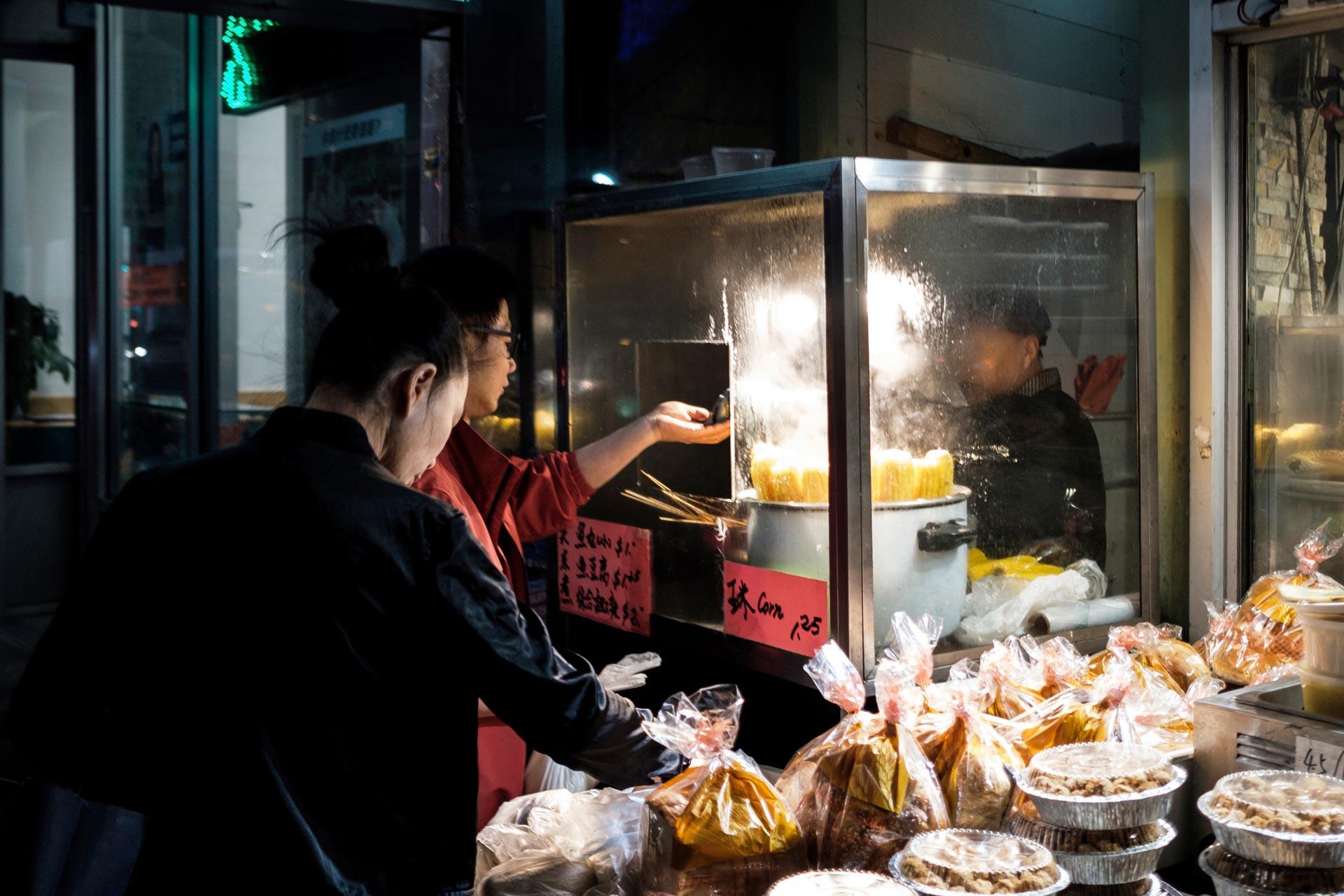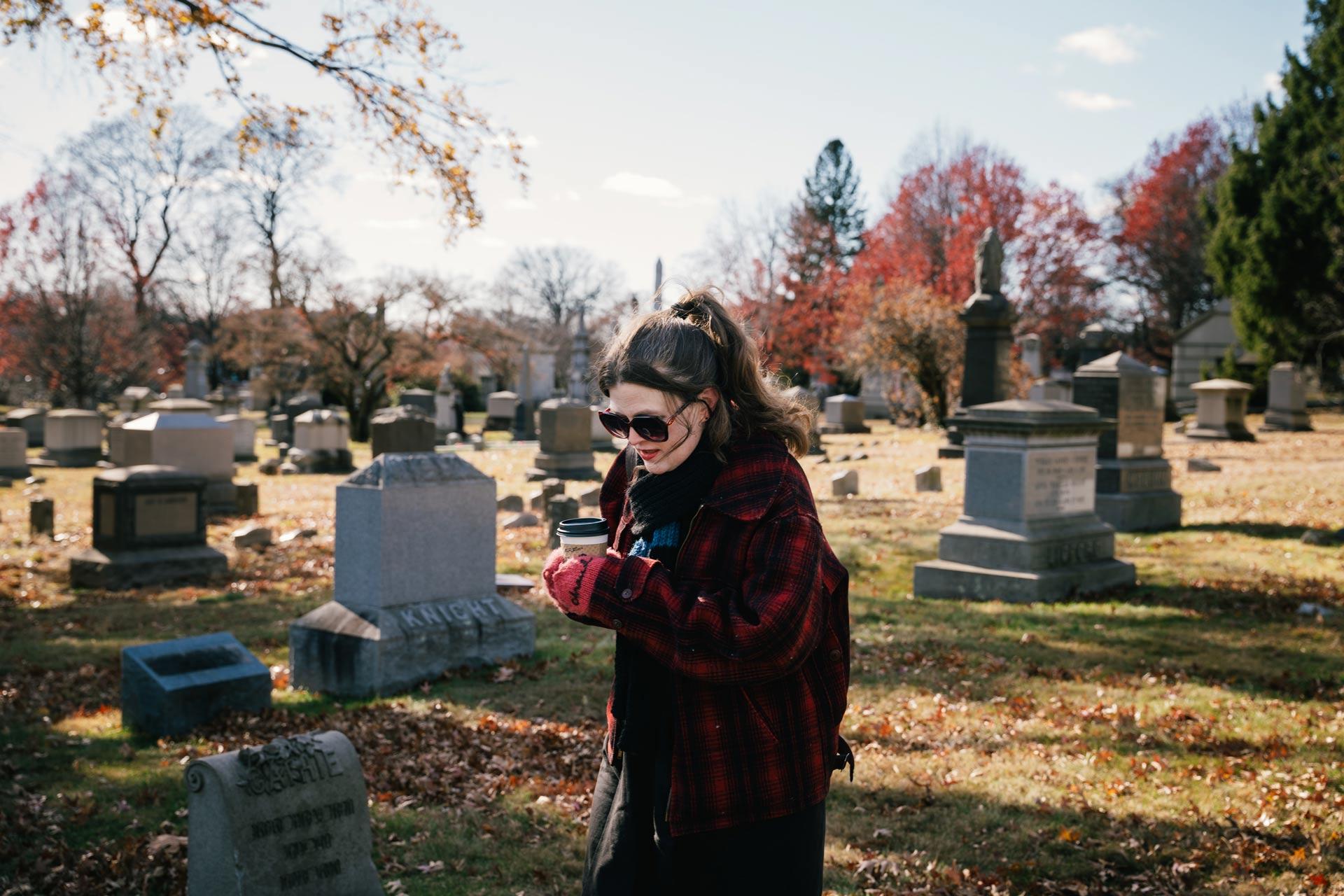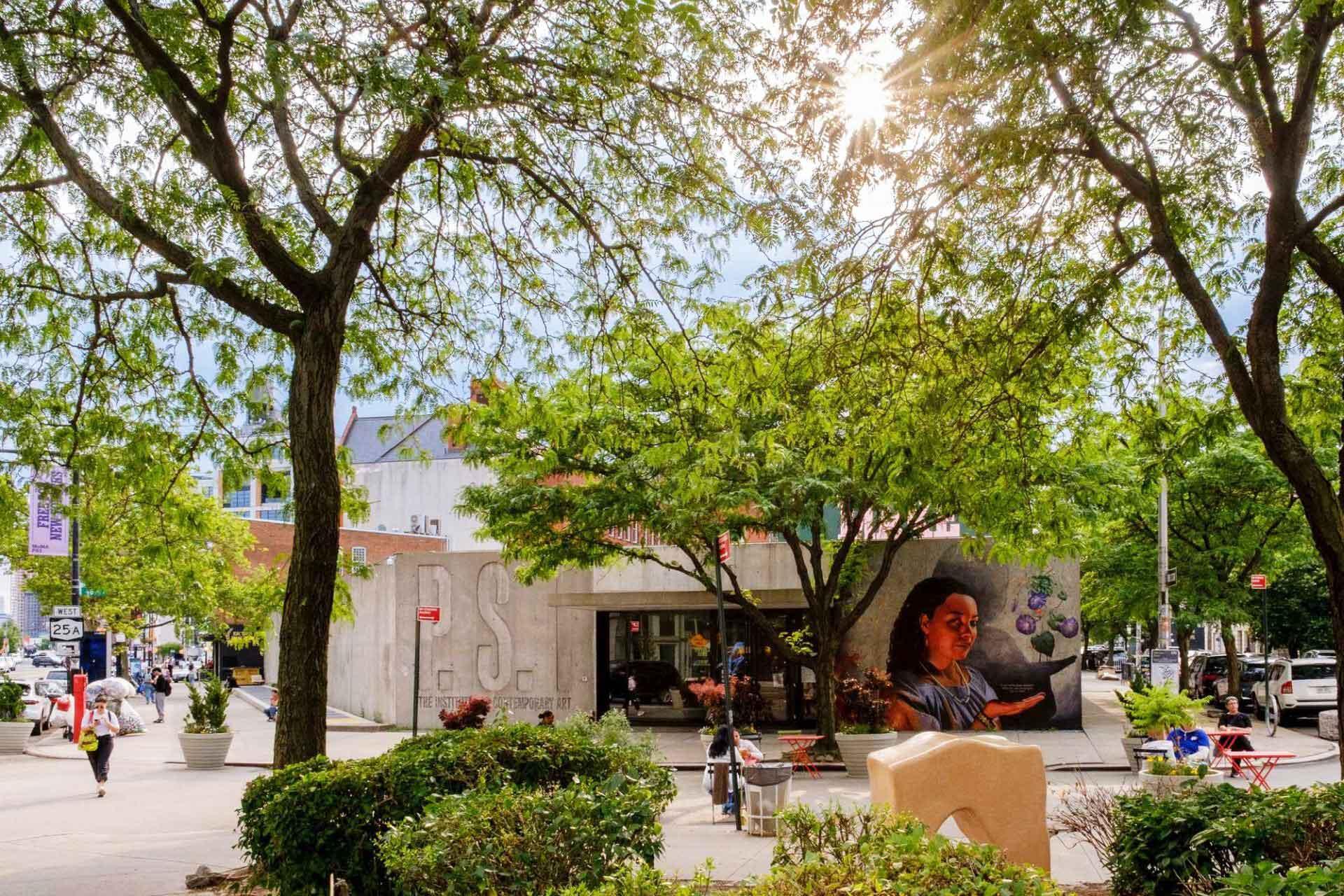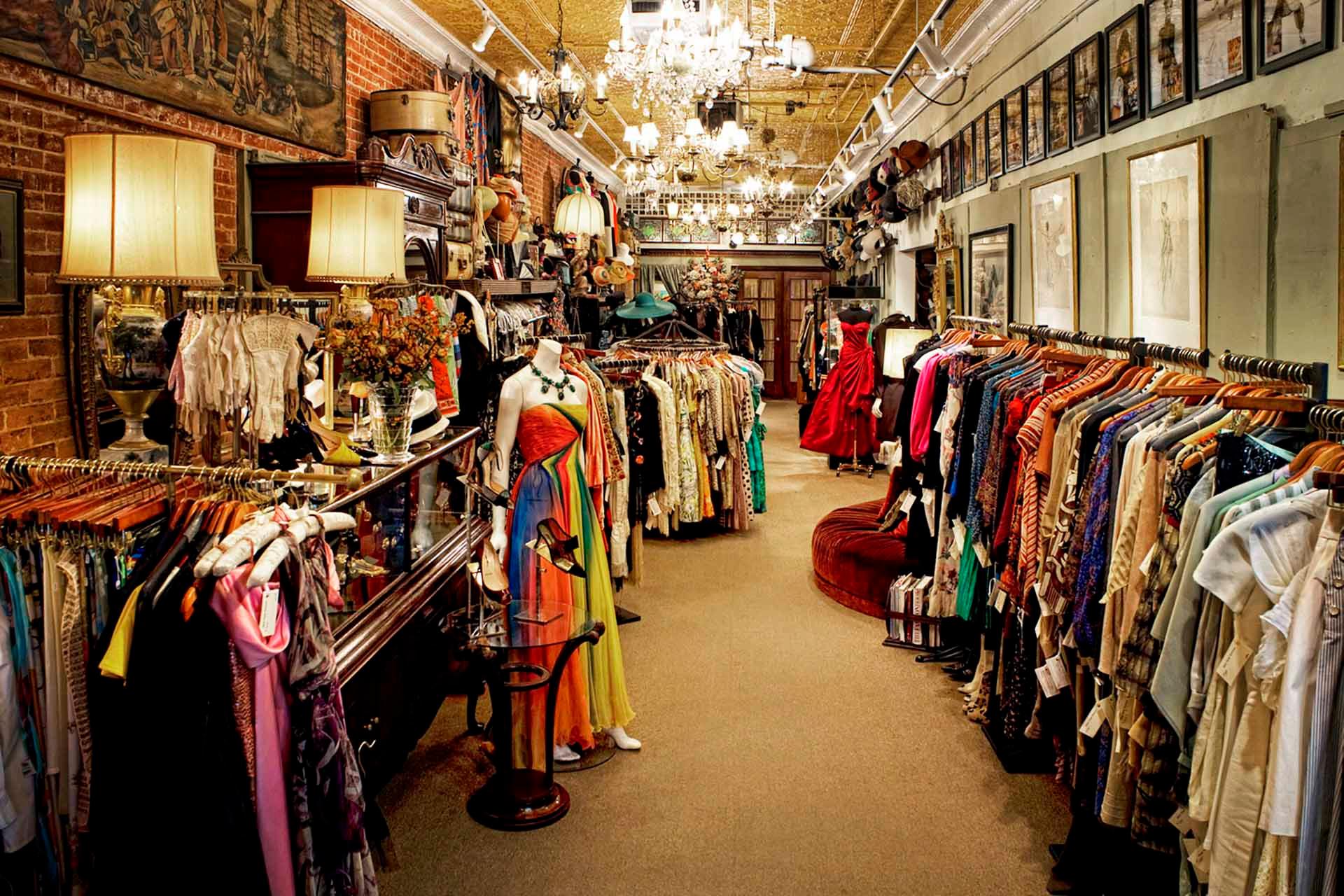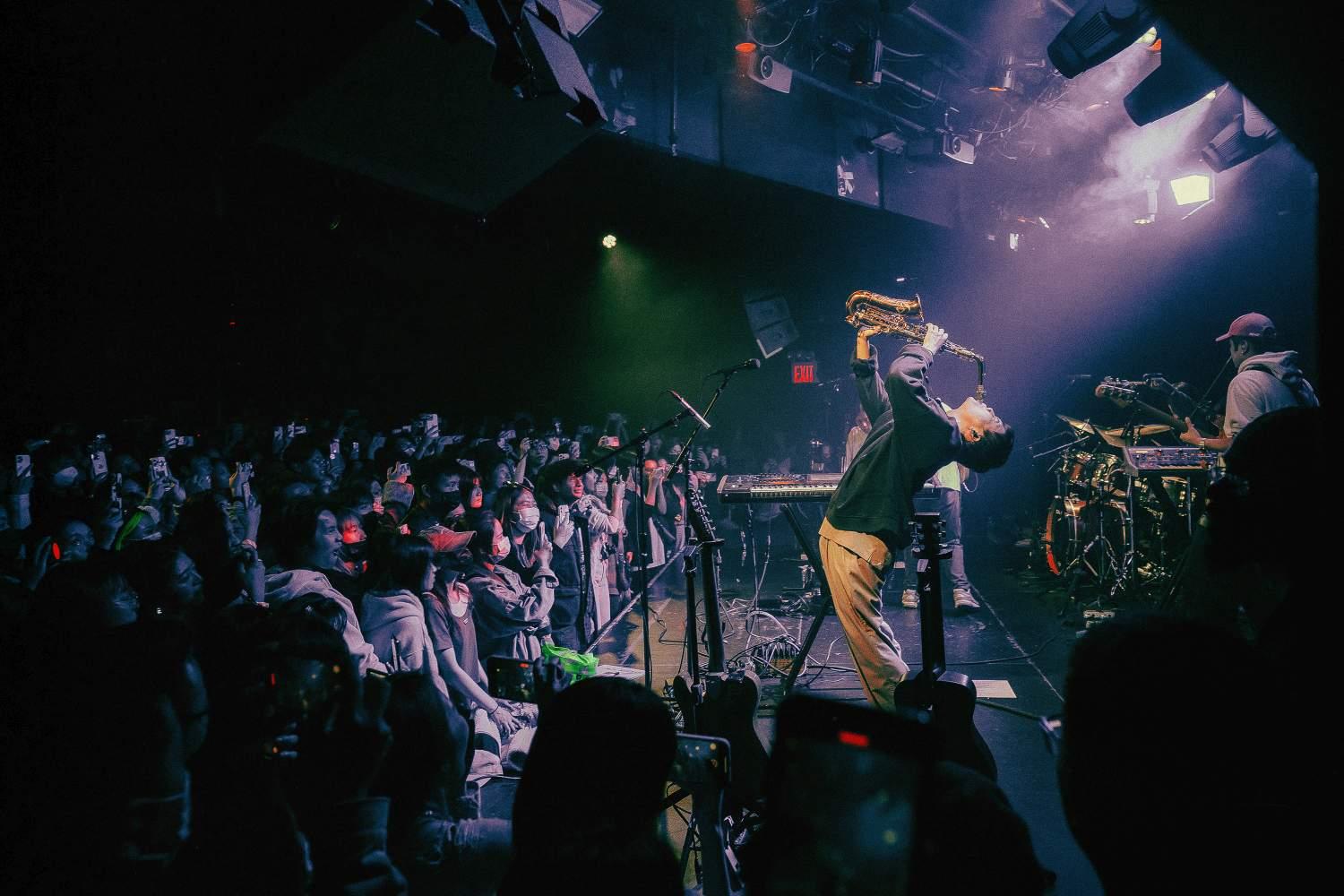Kamilah Forbes is a Chicago native with Jamaican roots who moved to New York City to pursue a career in the arts. Nearly 20 years later, there’s still no place the 44-year-old would rather be.
“There’s a vibrancy and an energy that I still feel even in the midst of the pandemic when I haven’t been able to go outside of my home. The collision of cultures and collision of ideas—you can’t get that anywhere else in this country,” says Forbes, who lives with her husband and 4-year-old daughter in the Prospect Lefferts Gardens neighborhood in Brooklyn.

Photo: Shahar Azan
In 2016, the award-winning director and producer became executive producer of the world-famous Apollo Theater, and in 2020 she made her film directorial debut with a visually alluring adaptation of her friend and Howard University classmate Ta-Nehisi Coates’ acclaimed nonfiction book Between the World and Me, conceived of as a letter from the author to his son and addressing both personal history and the realities of being Black in America. The film features plaintive performances by Phylicia Rashad, Angela Bassett, Joe Morton, Mahershala Ali and Oprah Winfrey, among other Black Hollywood luminaries.
We caught up with Forbes to discuss her creative works, the role NYC has in her life and career, and what’s next for her.
How did you pull the production of Between the World and Me together during a pandemic?
Kamilah Forbes: Well, using an incredible team of producers, an incredible production company (One Story Up), my incredible partner Roger Ross Williams and my lead producer Alisa Payne. They were inventive, relentless and were constantly finding really creative and different ways to get the job done. Thinking outside of the box is always a part of production, but at this particular time it’s especially important.

Susan Kelechi Watson reads from a passage of "Between the World and Me," Apollo Theater. Photo: Shahar Azran
Did you do any filming in person or was it all done virtually?
KF: I was on site for the shoots we did in Washington, DC, and in New York City. I was in person with Phylicia Rashad and Susan Kelechi Watson. Oprah was done remotely.
For the performances that were shot remotely, how were you able to extract that kind of emotion?
KF: In most cases, I had a great conversations with the actors. We had several rehearsal sessions and table work over Zoom. So a lot of discussions about the text, about the language, about finding entry points and being able to really break that down.
Was your visual style for the film influenced by your work in theater?
KF: Yes, some of my storytelling style does come from theater. I think a big part of that is the insistence around language. And then having language like what Ta-Nehisi wrote with this book was just incredible. So I wanted to make sure that the language was front and center, and that was sort of one of my first guiding principles.
Was part of your negotiation with HBO for Between the World and Me that they give funding to your alma mater, Howard University?
KF: It was and they did. It was important to all of us as executive producers, including myself, Ta-Nehisi and Susan [Kelechi Watson]. Number one, we wouldn’t be here if it wasn’t for that institution—the three of us attended school there. And so it was making sure that this film really was an opportunity to feed the institutions that fed us, particularly in a moment where we’re talking about this opportunity for racial reckoning and equity. We have to be vigilant about ringing the bell around how to correct the wrongs of those years and centuries of inequity in our funding practices. So that was absolutely a big part of our ask.
One of your first big projects here in New York City was the Hip-Hop Theater Festival. What was the genesis of the festival, and how was Chadwick Boseman involved?
KF: I started a theater company after graduation with a few friends from college, and Chad was one of them. And so we would produce one another’s plays. Then our company, which is Hip-Hop Theatre Junction, linked up with Clyde Valentin, who had produced [playwright] Sarah Jones [Off-Broadway]. And we joined forces to start the Hip-Hop Theater Festival in 2000. I was still living in DC but coming back and forth and working on that project. What was great is that we started the New York Hip-Hop Theater Festival and the DC Hip-Hop Theater Festival around the same time. And the DC festival is still going on today.

Courtesy, Sanden Wolff Productions
How did you make the transition to working with the Apollo, and what has it been like to be executive producer of this historic cultural institution?
KF: I had consulted with the Apollo on two global festivals, the Breakin’ Convention and the WOW (Women of the World Festival). But when I became executive producer, it was overwhelming. It’s the Apollo, right? There’s a history, a historical legacy that you’re sitting on top of. And it was really like, Whoa! But I began to find my voice in the space that it’s the act of upholding a legacy, but at the same time, it’s pushing it forward. And that’s what I felt I knew how to do. How do we find contemporary voices, contemporary artists, contemporary themes to really build a contemporary performing arts organization. I’m just really walking in the footsteps of others with this vision, and this started with my predecessor, Mikki Shepard.
Prior to doing the film adaptation, in 2018 and 2019 you brought Between the World and Me to the Apollo. What sparked that production?
KF: Well, I always find comfort in working with people I really know and love. So that was great to be able to work with Ta-Nehisi and his work. But also, it was a really personal piece to me because of knowing Ta-Nehisi and knowing Prince Carmen Jones, the central figure Ta-Nehisi writes about in the book who was murdered by a police officer. He was a colleague. He was a friend. He was a classmate at Howard. So it was personal. But I also felt like this is exactly the kind of work that I wanted the Apollo to be doing. It is work that speaks to now; work that speaks to our community; work that is relevant; work that is transformative; work that really asks very hard questions and interrogates our culture and society. So it was really fulfilling. Because as I see the Apollo moving forward, it only makes sense that this sits with us.
In-person events and programming should be coming back soon. What can we look forward to at the Apollo?
KF: We will be announcing updates very soon for the fall and next spring. What I can share is that we will be opening two new spaces. So I think there’s definitely a lot to look forward to out of this pandemic. In the past year the building has been closed, but we remained extremely active. We’ve done 65 productions for our digital stage. We continued to serve our mission in a creative capacity, even though we haven’t been in the building.
What’s next for you in terms of personal projects?
KF: A Soul Train musical I’m working on is in development. I’m not sure what’s up next for film. But we’ll discover and see.

Photo: Shahar Azran
What advice or words of encouragement would you give to other women of color interested in launching a career in theater, TV or film production?
KF: Don’t wait for permission. I think that’s the biggest thing. It’s like so many times we wait for permission or to be invited for a seat at the table. We don’t have time to wait for others to validate us. So if it’s about working in the field, find ways to create those opportunities and find ways to create pockets of community for yourself.
Favorite NYC Places
“It’s great to have a foot on both sides of the town,” says Forbes. “I have my Harlem spots and my Brooklyn spots!”
Shopping: Peace & Riot in Bed-Stuy, a Black-owned home goods and gift shop.
Dining Out: BLVD Bistro in Harlem, a Black-0wned, upscale soul food eatery.
Family Outings: The Brooklyn Children’s Museum and Brooklyn Botanic Garden.
Culture: “Obviously, I love my institution, the Apollo. But I take in culture everywhere, and I’m excited for what’s to come. I think people have recognized how much we need and miss live events and culture.”
For more recommendations by Forbes, check out her list of top virtual NYC experiences.


